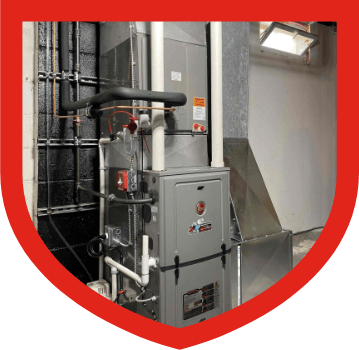Although every boiler installation is unique, they generally follow the same pattern — like this one:
- Assess the property’s heating requirements
- Calculate the boiler size
- Select the best boiler available
- Prepare the installation site
- Install the boiler and components
- Install the flue system
- Test the boiler and components
- Calibrate the thermostat
- Ensure everything functions safely
- Provide customer with user manuals
After the installation, you’ll get to enjoy all the benefits a boiler can bring — but that’s not the end. Boilers need to be looked after, so maintenance should also be on your mind. The company you opt for should have a track record of maintaining boilers just like yours. Regular maintenance will ensure you get the optimum benefits from your boiler and advanced warning of a developing issue. This brings us to the final subject — boiler repairs.
Even the best boilers can develop a fault at some point. Therefore, your company of choice should not only be adept at repairs but also respond promptly. This is because a minor fault can quickly become a serious issue if it’s not repaired quickly. Stress won’t be the only cost to you if there’s a delay, because leaking water can corrode metals it comes into contact with and soften wood.
So, how will you know if there’s a problem? Here are some warning signs to look out for:
- Strange noises and uneven heating
- Boiler turning itself off/on frequently
- Unexpected increases in energy costs
- Fluctuating water pressure
- Repeated safety shut-downs
- Strange and unpleasant odors


